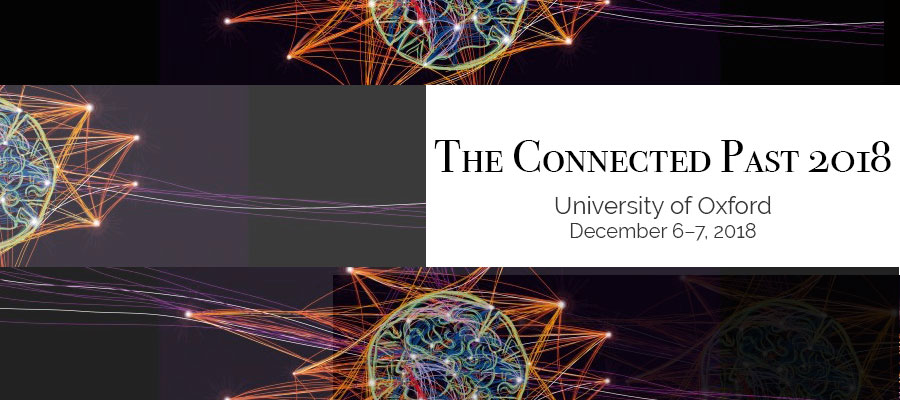The Connected Past 2018, University of Oxford, December 6–7, 2018
The Connected Past 2018 is a multi-disciplinary, international two-day conference that aims to provide a friendly and informal platform for exploring the use of network research in the study of the human past.
How do social networks evolve over huge time-scales? How did geography constrain or enhance the development of past social networks? These are fundamental questions in both the study of the human past and network research, yet our ability to answer them is severely hampered by the limited development of spatiotemporal network methods. PastNet is an inter-disciplinary network that aims to stimulate the development and application of such methods through networking meetings, a conference and a workshop.
Formal network methods are increasingly commonly applied in a wide range of disciplines to study phenomena as diverse as the connectivity of neurons in the human brain, terrorist networks, a billion interlinked Facebook profiles, and power grids. Despite this diversity and the decades-long tradition of using network methods in the social sciences, physics and computer science, the development of techniques for the study of spatial networks and long-term network change has so far been largely neglected. Network research is also becoming more common in disciplines concerned with the study of past human behaviour: archaeology, classics and history. These disciplines have a strong tradition in exploring long-term human behavioural change and spatial phenomena, despite being forced to use fragmentary textual and material sources as indirect evidence of such phenomena.
By bringing together network researchers from archaeology, classics, computer science, digital humanities, history, mathematics, network science, oriental studies, physics, psychology, and sociology, The Connected Past 2018 conference in Oxford aims to foster cross-disciplinary exchange to push network research further. The historical disciplines will contribute new spatiotemporal approaches and datasets to network research, whereas the traditional network research disciplines will further stimulate the critical application of network approaches to the study of the human past.
Presentations will be delivered on the topic of spatial and temporal network approaches, addressing the challenges posed by the use of or apply network approaches in historical/archaeological research contexts, with case studies drawn from all periods and places.
Advance registration required. Registration closes November 1.
